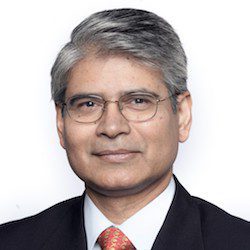Text – Diego Brasioli
 The course contents were very interesting, combining in a successful way the theoretical aspects of diplomacy with concrete examples drawn from the history and practice of international relations. The list of suggested readings is comprehensive if you need to deepen your knowledge of the subject, but what makes the course very successful is the interactive fashion in which it is carried out, with effective and prompt guidance from the teachers and instructors. The learning platform is quite intuitive and practical to use, enhancing the possibility of real dialogue among all the participants. I believe that this course is very useful not only to those interested in joining a diplomatic career but also for professionals in the field, giving them the opportunity to fine-tune their experience and knowledge of the subject.
The course contents were very interesting, combining in a successful way the theoretical aspects of diplomacy with concrete examples drawn from the history and practice of international relations. The list of suggested readings is comprehensive if you need to deepen your knowledge of the subject, but what makes the course very successful is the interactive fashion in which it is carried out, with effective and prompt guidance from the teachers and instructors. The learning platform is quite intuitive and practical to use, enhancing the possibility of real dialogue among all the participants. I believe that this course is very useful not only to those interested in joining a diplomatic career but also for professionals in the field, giving them the opportunity to fine-tune their experience and knowledge of the subject.
– Amb. Diego Brasioli, Ministry of Foreign Affairs of Italy
 The course strongly re-emphasises that mature and professional diplomacy is essential to managing and maintaining good relations between states. The learning methodology is practical and effective. The knowledge I acquired through the sharing of information and experiences among course participants and the esteemed course lecturer is invaluable and shall be utilised in the execution of my job responsibilities.
The course strongly re-emphasises that mature and professional diplomacy is essential to managing and maintaining good relations between states. The learning methodology is practical and effective. The knowledge I acquired through the sharing of information and experiences among course participants and the esteemed course lecturer is invaluable and shall be utilised in the execution of my job responsibilities. The course is an insightful and critical introduction to the main past and present aspects of diplomacy. The continuous interaction with participants from all over the world and the devoted lecturers and Diplo staff, make you forget it’s an online course. I definitely recommend it to newcomers to diplomacy like me.
The course is an insightful and critical introduction to the main past and present aspects of diplomacy. The continuous interaction with participants from all over the world and the devoted lecturers and Diplo staff, make you forget it’s an online course. I definitely recommend it to newcomers to diplomacy like me. This course provided me with an avenue to share knowledge on diplomacy and analysis on current international relations events. I realised that I really missed the interactive and stimulating discussions of my class when new developments in the planned US–North Korea summit arose, and I was eager to share my thoughts. As a lecturer of diplomacy, the course is significantly helping me in my quest of shaping the future generation of Nigerian diplomats.
This course provided me with an avenue to share knowledge on diplomacy and analysis on current international relations events. I realised that I really missed the interactive and stimulating discussions of my class when new developments in the planned US–North Korea summit arose, and I was eager to share my thoughts. As a lecturer of diplomacy, the course is significantly helping me in my quest of shaping the future generation of Nigerian diplomats.
 This course is truly a MUST for any newcomer or professional diplomat who is in need of polishing or refreshing their knowledge about the basics of diplomacy in the modern world. It was very beneficial because it gave me the opportunity to apply theory to practice by exploring how the different aspects of diplomacy are practiced on a daily basis, and learning to recognise those theories at first glance. It is indeed one of the most insightful, dynamic, and interactive courses I have ever taken, a real eye-opener.
This course is truly a MUST for any newcomer or professional diplomat who is in need of polishing or refreshing their knowledge about the basics of diplomacy in the modern world. It was very beneficial because it gave me the opportunity to apply theory to practice by exploring how the different aspects of diplomacy are practiced on a daily basis, and learning to recognise those theories at first glance. It is indeed one of the most insightful, dynamic, and interactive courses I have ever taken, a real eye-opener.



